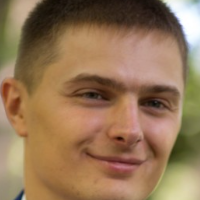International Journal of Intelligent Systems and Applications (IJISA)
IJISA Vol. 7, No. 2, 8 Jan. 2015
Cover page and Table of Contents: PDF (size: 330KB)
An Extended Neo-Fuzzy Neuron and its Adaptive Learning Algorithm
Full Text (PDF, 330KB), PP.21-26
Views: 0 Downloads: 0
Author(s)
Index Terms
Learning Method, Neuro-Fuzzy System, Extended Neo-Fuzzy Neuron, Computational Intelligence
Abstract
A modification of the neo-fuzzy neuron is proposed (an extended neo-fuzzy neuron (ENFN)) that is characterized by improved approximating properties. An adaptive learning algorithm is proposed that has both tracking and smoothing properties and solves prediction, filtering and smoothing tasks of non-stationary “noisy” stochastic and chaotic signals. An ENFN distinctive feature is its computational simplicity compared to other artificial neural networks and neuro-fuzzy systems.
Cite This Paper
Yevgeniy V. Bodyanskiy, Oleksii K. Tyshchenko, Daria S. Kopaliani, "An Extended Neo-Fuzzy Neuron and its Adaptive Learning Algorithm", International Journal of Intelligent Systems and Applications(IJISA), vol.7, no.2, pp.21-26, 2015. DOI:10.5815/ijisa.2015.02.03
Reference
[1]D. Graupe, Principles of Artificial Neural Networks (Advanced Series in Circuits and Systems). Singapore: World Scientific Publishing Co. Pte. Ltd., 2007.
[2]K. Suzuki, Artificial Neural Networks: Architectures and Applications. NY: InTech, 2013.
[3]G. Hanrahan, Artificial Neural Networks in Biological and Environmental Analysis. NW: CRC Press, 2011.
[4]L. Rutkowski, Computational Intelligence. Methods and Techniques. Berlin: Springer-Verlag, 2008.
[5]C.L. Mumford and L.C. Jain, Computational Intelligence. Berlin: Springer-Verlag, 2009.
[6]R. Kruse, C. Borgelt, F. Klawonn, C. Moewes, M. Steinbrecher, and P. Held, Computational Intelligence. A Methodological Introduction. Berlin: Springer-Verlag, 2013.
[7]K.-L. Du and M.N.S. Swamy, Neural Networks and Statistical Learning. London: Springer-Verlag, 2014.
[8]T. Yamakawa, E. Uchino, T. Miki and H. Kusanagi, “A neo fuzzy neuron and its applications to system identification and prediction of the system behavior,” Proc. 2nd Int. Conf. on Fuzzy Logic and Neural Networks, pp. 477-483, 1992.
[9]E. Uchino and T. Yamakawa, “Soft computing based signal prediction, restoration and filtering,” in Intelligent Hybrid Systems: Fuzzy Logic, Neural Networks and Genetic Algorithms, Boston: Kluwer Academic Publisher, 1997, pp. 331-349.
[10]T. Miki and T. Yamakawa, “Analog implementation of neo-fuzzy neuron and its on-board learning,” in Computational Intelligence and Applications, Piraeus: WSES Press, 1999, pp. 144-149.
[11]T. Takagi T. and M. Sugeno, “Fuzzy identification of systems and its application to modeling and control”, in IEEE Trans. on Systems, Man, and Cybernetics, no. 15, 1985, pp. 116 – 132.
[12]J-S.R. Jang, C.T. Sun and E. Mizutani, Neuro-Fuzzy and Soft Computing: A Computational Approach to Learning and Machine Intelligence, New Jersey: Prentice Hall, 1997.
[13]Ye. Bodyanskiy and V. Kolodyazhniy, “Adaptive nonlinear control using neo-fuzzy model”, in Sinergies Between Information Processing and Automation, pp. 122 – 127, 2004.
[14]Ye. Bodyanskiy, I. Kokshenev, V. Kolodyazhniy, and P. Otto, “A self-training robust neo-fuzzy controller with constraints on control actions”, 50th Int. Wiss. Koll. Tagungsband, ss. 125 – 126, 2005.
[15]J. Zhang and H. Knoll, “Constructing fuzzy-controllers with B-spline models – Principles and Applications”, in Int. J. of Intelligent Systems, no. 13, 1998, pp. 257 – 285.
[16]V. Kolodyazhniy and Ye. Bodyanskiy, “Cascaded multiresolution spline-based fuzzy neural network”, Proc. Int. Symp. on Evolving Intelligent Systems, pp. 26 – 29, 2010.
[17]Ye. Bodyanskiy, I. Kokshenev and V. Kolodyazhniy, “An adaptive learning algorithm for a neo-fuzzy neuron”, Proc. 3rd Int. Conf. of European Union Soc. for Fuzzy Logic and Technology, pp. 375-379, 2003.
[18]S. Haykin, Neural Networks: A Comprehensive Foundation. Upper Saddle River, New Jersey: Prentice Hall, 1999.
[19]G.C. Goodwin, P.J. Ramage, and P.E. Caines, “Discrete time stochastic adaptive control”, in SIAM J. Control and Optimization, no. 19, 1981, pp. 829 – 853.
[20]L.X. Wang and J.M. Mendel, “Fuzzy basis functions, universal approximation and orthogonal least squares learning”, in IEEE Trans. on Neural Networks, no. 3, 1993, pp. 807 – 814.
[21]L.X. Wang, Adaptive Fuzzy Systems and Control. Design and Stability Analysis. Upper Saddle River, New Jersey: Prentice Hall, 1994.
[22]S. Osowski, Sieci neuronowe do przetwarzania informacji. Warszawa: Oficijna Wydawnicza Politechniki Warszawskiej, 2006.
[23]M.C. Mackey and L. Glass, “Oscillation and chaos in physiological control systems”, in Science, no. 197, 1977, pp. 238-289.
[24]K.S. Narendra and K. Parthasarathy, “Identification and control of dynamic systems using neural networks”, in IEEE Trans. on Neural Networks, no. 1, 1990, pp. 4-26.

